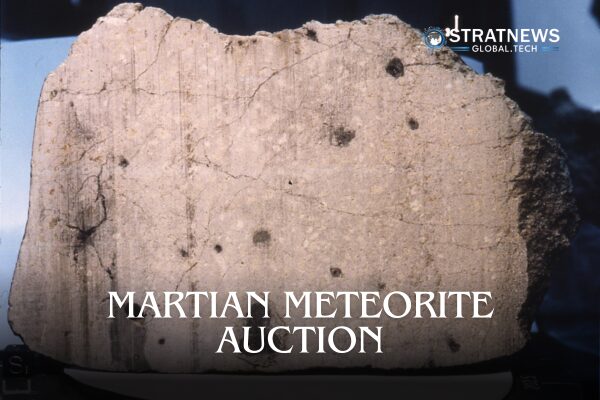Largest Martian Meteorite Set for Auction in New York
Sotheby’s has revealed the largest Martian meteorite ever found on Earth, weighing 54 pounds (24.4 kg), ahead of its auction on 16 July in New York. Known as NWA 16788, this rare fragment was discovered in Niger’s remote Agadez region on 16 November 2023 by a meteorite hunter.
Confirmed as a Piece of Mars
The meteorite was first recognised as special by locals due to its size and unique features. However, its true origin was confirmed only after laboratory tests. Cassandra Hatton, Sotheby’s vice-chairman and global head of science and natural history, shared that the tests revealed the rock had indeed come from Mars.
About five million years ago, a powerful asteroid or comet hit Mars, sending rocks and debris into space. Some of these fragments travelled millions of miles before landing on Earth. NWA 16788 is now the largest known Martian meteorite on Earth, adding to its significance for collectors and scientists alike.
A Rare Find Among Meteorites
Astrophysicists note that there are over 77,000 officially recognised meteorites, but only around 400 are known to have come from Mars. Most of these are far smaller than NWA 16788. Hatton explained that only 19 asteroid strikes on Mars have been large enough to eject rocks of this size into space.
Travelling 140 million miles through space, the meteorite survived the intense heat of Earth’s atmosphere, which usually burns up most objects. It eventually landed in the Sahara instead of the ocean, increasing the chances of its discovery and preservation.
Expected to Fetch Millions at Auction
NWA 16788 is expected to sell for between $2 million and $4 million at Sotheby’s. It will feature during Sotheby’s annual “Geek Week” auction series, running from 2-17 July. Hatton noted that many factors needed to align for the meteorite to be found and confirmed, making its journey from Mars to Earth remarkable.
The auction offers a rare chance for collectors to own a piece of the Red Planet, adding a historic and scientific treasure to their collections.
with inputs from Reuters


